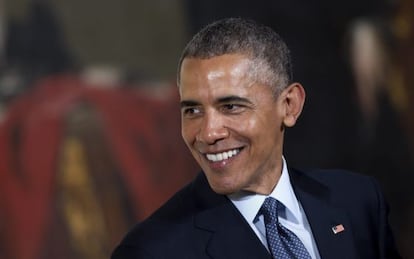Castro and Obama set to star at Panama summit
But warming US-Cuba relations will require much work ahead, say experts


The red carpet will be thrown out for Raúl Castro in Panama on Friday.
The Cuban leader’s presence at the two-day Summit of the Americas signals the Caribbean island’s willingness to reincorporate itself in Western affairs.
This year’s summit may have not been held if Castro had not pledged to attend – something Latin and Caribbean made clear to US President Barack Obama during the last regional meeting three years ago in Cartagena de Indias, Colombia.
Raúl Castro will arrive in Panama “holding his head up high,” says one analyst
Castro will not only be present in Panama but will arrive with a feather in his hat now that the process of normalizing bilateral relations between Cuba and the United States is underway. No one could have imagined back then in Cartagena that this would have occurred.
As Jorge Domínguez, a Latin American specialist at Harvard University, put it: Castro will arrive in Panama “holding his head up high.” There is no shrugging off that he has accomplished something that “his brother Fidel was never able to achieve,” Domínguez added.
Nevertheless, after more than 50 years of nearly non-existent relations, there is still a long and difficult road ahead that will not end when Havana and Washington finally exchange ambassadors. In fact, that will only be the beginning, according to Roberta Jacobson, the assistant secretary of state for Western Hemisphere Affairs and chief negotiator in the talks.
But for two countries who carried on the Cold War for a quarter century after the fall of the Berlin Wall, the advances in the bilateral talks have been unimaginable. Even the official summit photo of Obama and Castro standing in the same group with other regional leaders will be historic.
While the government in Havana has not made any bold announcements – like Washington did when it lifted some travel and trade restrictions in January – Cuba is continuing on a discreet path of implementing economic reforms that were started before the December 17 announcement of the beginning of bilateral talks.
It hasn’t been easy for an island that had maintained a rigid communist-based economy for more than five decades, said Geoff Thale, a Cuba analyst at the Washington Office on Latin America (WOLA).
“This is not going to be a process of give and take – we’ll lift the travel ban if you liberalize your economy,” he said. “But clearly there are parallel processes underway and we have seen some reforms in the Cuban economy. This has an impact toward decentralizing policy and greater political openness.”
The two countries carried on the Cold War for a quarter century after the fall of the Berlin Wall
But not everyone will be celebrating. Cuban dissidents will also travel to Panama to remind regional leaders that democratic principles are still lacking on an island whose human rights record is not on par with international standards.
According to the Cuban Human Rights and National Reconciliation Commission (CCDHRN), there were 610 arbitrary arrests for political motives during March – the highest number in six months.
Thale believes that it is “unrealistic” to think that Latin American governments – “who for 55 years have criticized the United States for its treatment of Cuba – will publicly chastise the Castro regime in Panama for its human rights record.
“I don’t think they are going to demand that Castro introduce an immediate major openness policy. But I hope and I believe that they will speak about very specific things, such as greater access to information and the end to arbitrary detentions.
“Of course, they will start doing this discreetly, but there is a bigger possibility that they will do it in the coming years,” he said.
Tu suscripción se está usando en otro dispositivo
¿Quieres añadir otro usuario a tu suscripción?
Si continúas leyendo en este dispositivo, no se podrá leer en el otro.
FlechaTu suscripción se está usando en otro dispositivo y solo puedes acceder a EL PAÍS desde un dispositivo a la vez.
Si quieres compartir tu cuenta, cambia tu suscripción a la modalidad Premium, así podrás añadir otro usuario. Cada uno accederá con su propia cuenta de email, lo que os permitirá personalizar vuestra experiencia en EL PAÍS.
En el caso de no saber quién está usando tu cuenta, te recomendamos cambiar tu contraseña aquí.
Si decides continuar compartiendo tu cuenta, este mensaje se mostrará en tu dispositivo y en el de la otra persona que está usando tu cuenta de forma indefinida, afectando a tu experiencia de lectura. Puedes consultar aquí los términos y condiciones de la suscripción digital.








































